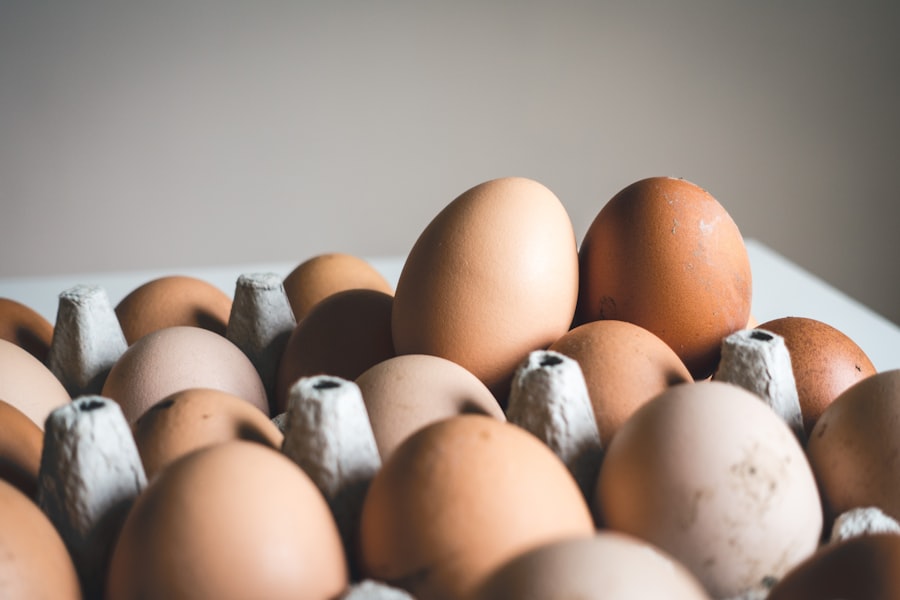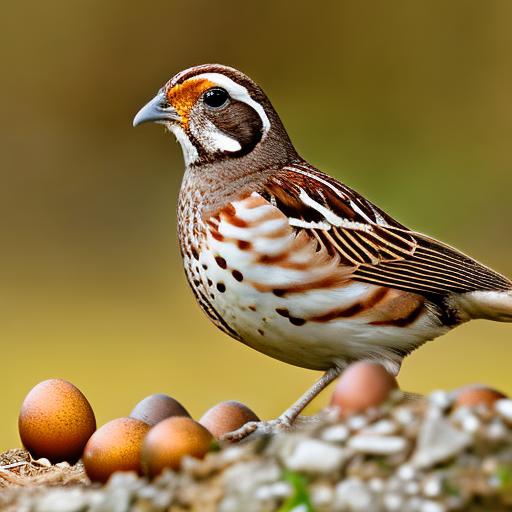When it comes to choosing the right quail breed for your needs, there are several factors to consider. First and foremost, you’ll want to think about the purpose of raising quail. Are you looking to raise quail for meat, eggs, or as pets? Different breeds are better suited for different purposes. For example, if you’re interested in raising quail for their eggs, you might want to consider breeds like Coturnix or Bobwhite, which are known for their prolific egg-laying abilities. On the other hand, if you’re interested in raising quail for meat, breeds like Jumbo Coturnix or Pharaoh might be more suitable due to their larger size.
Another important factor to consider when choosing a quail breed is the climate and environment in which you’ll be raising them. Some quail breeds are better suited for cold climates, while others thrive in warmer environments. It’s important to choose a breed that is well-adapted to the climate in your area to ensure their health and well-being. Additionally, consider the space you have available for raising quail. Some breeds are more suited for confinement, while others require more space to roam and forage. By taking these factors into consideration, you can choose the right quail breed that best fits your specific needs and circumstances.
Key Takeaways
- Consider the purpose of raising quail when choosing a breed, such as for meat or eggs
- Provide at least 1 square foot of space per quail in the enclosure to prevent overcrowding
- Offer a balanced diet of commercial quail feed, supplemented with greens and protein
- Maintain a clean and stress-free environment with proper lighting and ventilation
- Monitor for common diseases and parasites, and seek veterinary care when necessary
- Collect eggs daily to prevent breakage and store them in a cool, dry place
- Use artificial lighting to extend daylight hours and encourage consistent egg laying
Housing and Enclosure for Quail
When it comes to housing and enclosure for quail, there are several important considerations to keep in mind. First and foremost, quail require a safe and secure space to live in order to thrive. This means providing them with a sturdy enclosure that is protected from predators and the elements. The size of the enclosure will depend on the number of quail you plan to raise, but as a general rule of thumb, each quail should have at least 1 square foot of space to ensure they have enough room to move around comfortably.
In addition to providing a secure enclosure, it’s important to consider the bedding and flooring within the quail housing. Quail require a soft and absorbent bedding material, such as pine shavings or straw, to provide them with a comfortable and clean living environment. Additionally, the flooring should be solid and easy to clean in order to maintain good hygiene and prevent the buildup of waste and bacteria. Lastly, consider providing your quail with access to outdoor space if possible, as they will benefit from being able to forage and exercise outside of their enclosure. By providing a safe and comfortable housing and enclosure for your quail, you can ensure that they are able to live happy and healthy lives.
Feeding and Nutrition for Quail
Feeding and nutrition are crucial aspects of raising healthy quail. Quail require a balanced diet that provides them with the necessary nutrients to support their growth, egg production, and overall health. A good quality commercial quail feed is a great foundation for their diet, as it is specially formulated to meet their nutritional needs. Look for a feed that contains a balanced mix of protein, vitamins, and minerals to ensure that your quail are getting everything they need.
In addition to commercial feed, it’s important to supplement your quail’s diet with fresh fruits and vegetables, as well as grit and calcium supplements. Fresh produce provides essential vitamins and minerals that may be lacking in their commercial feed, while grit helps with digestion and calcium supplements support strong eggshell formation in laying hens. It’s also important to provide access to clean water at all times, as quail require constant access to water for proper digestion and overall health.
Lastly, it’s important to monitor your quail’s feeding habits and adjust their diet as needed based on their age, activity level, and overall health. By providing a balanced diet and proper nutrition, you can ensure that your quail are healthy and thriving.
Providing the Right Environment for Quail
Creating the right environment for your quail is essential for their health and well-being. Quail thrive in environments that mimic their natural habitat, so it’s important to provide them with the right conditions to ensure their comfort and happiness. This includes maintaining a consistent temperature within their living space, as quail are sensitive to extreme temperatures. In colder climates, consider using heat lamps or other heating sources to keep the temperature within the enclosure at a comfortable level.
Additionally, it’s important to provide adequate lighting within the quail enclosure. Quail require a consistent light cycle to regulate their reproductive and laying cycles, so it’s important to provide them with 14-16 hours of light per day. This can be achieved using natural sunlight or artificial lighting sources.
Another important aspect of creating the right environment for quail is providing them with opportunities for exercise and mental stimulation. Consider adding perches or platforms within their enclosure for them to roost on, as well as providing them with toys or objects to peck at and explore. By creating an enriching environment for your quail, you can ensure that they are happy and healthy.
Health and Disease Management for Quail
Maintaining the health of your quail is essential for their overall well-being and productivity. One of the most important aspects of health management is preventing disease through good hygiene practices. This includes regularly cleaning and disinfecting their living space, as well as providing them with clean bedding and fresh water. Additionally, it’s important to monitor your quail for any signs of illness or distress, such as changes in behavior or appearance.
In addition to good hygiene practices, it’s important to provide your quail with regular veterinary care to ensure that they are healthy and free from disease. This includes regular check-ups and vaccinations as recommended by a qualified avian veterinarian. By staying proactive about your quail’s health care, you can prevent the spread of disease and ensure that they are able to live long and healthy lives.
Lastly, it’s important to be prepared to handle any health issues that may arise with your quail. This includes having a basic understanding of common quail diseases and their symptoms, as well as having a plan in place for quarantine and treatment if necessary. By staying informed and proactive about your quail’s health, you can ensure that they are able to thrive in your care.
Collecting and Handling Quail Eggs

Collecting and handling quail eggs is an important aspect of raising quail for their eggs. Quail eggs are delicate and require careful handling in order to maintain their quality and freshness. When collecting eggs from your quail, it’s important to handle them gently and avoid shaking or jostling them, as this can cause damage to the eggshell or yolk inside.
It’s also important to collect eggs frequently in order to prevent them from becoming soiled or damaged within the nesting area. Quail are prolific layers and will lay eggs daily, so it’s important to check for new eggs at least once a day. When collecting eggs, be sure to clean off any dirt or debris using a dry cloth or brush, but avoid washing them with water unless absolutely necessary, as this can remove the protective coating on the eggshell.
Once collected, store quail eggs in a cool and dry location away from strong odors or direct sunlight. Proper storage is essential for maintaining the freshness of the eggs and preventing spoilage. By handling quail eggs with care and storing them properly, you can ensure that they are safe for consumption and maintain their quality.
Tips for Maximizing Egg Production
If you’re raising quail for their eggs, there are several tips you can follow to maximize egg production. First and foremost, provide your quail with a balanced diet that meets their nutritional needs. A good quality commercial feed supplemented with fresh fruits and vegetables will ensure that your quail have everything they need to lay plenty of eggs.
In addition to providing a balanced diet, it’s important to create the right environment for your quail in order to maximize egg production. This includes maintaining a consistent light cycle of 14-16 hours per day, as well as providing them with a comfortable living space that mimics their natural habitat. By creating the right conditions for your quail, you can encourage them to lay eggs regularly.
Lastly, consider adding additional nesting boxes within the quail enclosure in order to provide them with plenty of space to lay their eggs. This will prevent overcrowding and competition for nesting space among your quail, which can lead to stress and reduced egg production. By following these tips, you can maximize egg production from your quail and enjoy a steady supply of fresh eggs.
If you’re interested in learning how to keep quail for eggs, you might also find our article on “How to Insulate a Chicken Coop” helpful. Proper insulation is crucial for maintaining a comfortable and healthy environment for your quail, especially during extreme weather conditions. Check out the article here for valuable tips on creating a well-insulated coop for your quail.
FAQs
What are the benefits of keeping quail for eggs?
Quail eggs are considered a delicacy and are known for their rich flavor and high nutritional value. They are also smaller in size compared to chicken eggs, making them a popular choice for gourmet dishes and appetizers.
What do quail need in their living environment?
Quail require a clean and spacious living environment with access to fresh water, proper ventilation, and protection from predators. They also need a balanced diet that includes a high-quality commercial feed and access to grit for digestion.
How many eggs can a quail lay in a year?
On average, a quail can lay around 200-300 eggs per year, depending on the breed and environmental conditions. Quail are known for their high egg production and can start laying eggs as early as 6-8 weeks old.
What are some common health issues for quail?
Common health issues for quail include respiratory infections, parasites, and egg binding. It’s important to provide a clean living environment, regular health check-ups, and a balanced diet to prevent these health issues.
Can quail be kept with other poultry?
Quail can be kept with other poultry, but it’s important to provide separate living spaces to prevent any potential conflicts or diseases. Quail are generally more fragile and smaller in size compared to other poultry, so they may require special care and attention.
Meet Walter, the feathered-friend fanatic of Florida! Nestled in the sunshine state, Walter struts through life with his feathered companions, clucking his way to happiness. With a coop that’s fancier than a five-star hotel, he’s the Don Juan of the chicken world. When he’s not teaching his hens to do the cha-cha, you’ll find him in a heated debate with his prized rooster, Sir Clucks-a-Lot. Walter’s poultry passion is no yolk; he’s the sunny-side-up guy you never knew you needed in your flock of friends!







